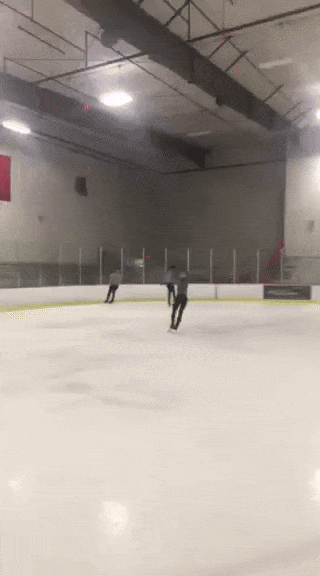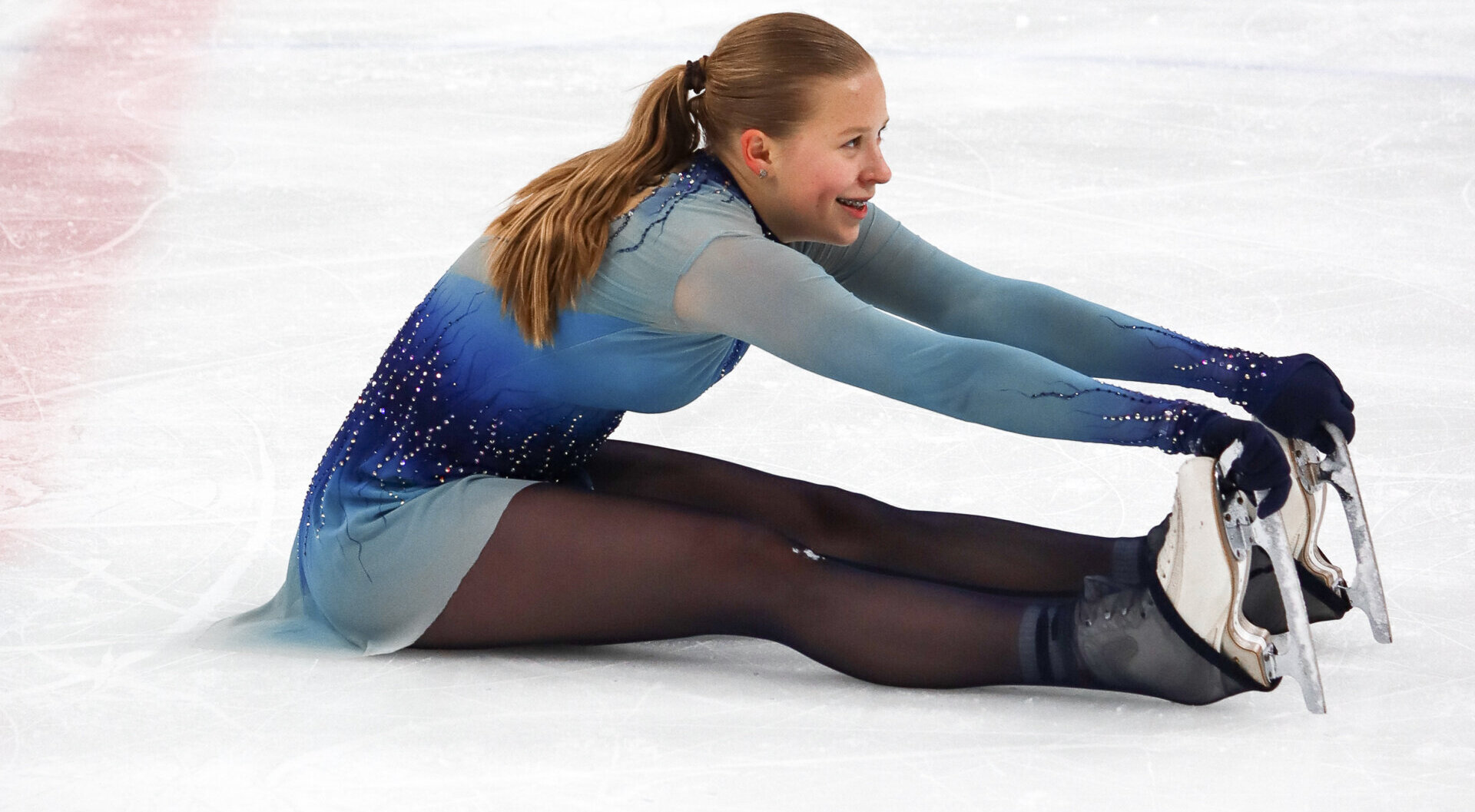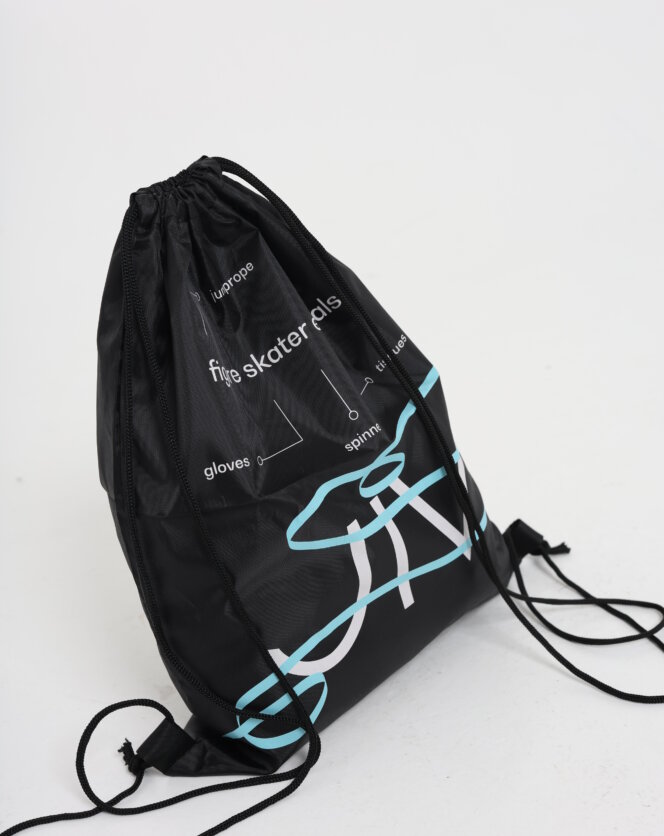Mental blocks in figure skating – we’ve all been there
Literally
You will not come across a figure skater who hasn’t at one point in their career experienced a mental block. Firstly I’ll explain what I mean by a mental block. So imagine you’ve been doing really well at jumping your double Salchow. One morning you wake up, you have a bad training, Salchow isn’t working, maybe you even take a bad fall on it. Next thing you know, your Salchow jump isn’t working anymore. It’s like you forgot how to do it. You keep popping it and failing. You can feel how the body is not doing the right thing, but it’s somehow difficult to get it to do the right thing. In the end it becomes so bad, you give up before trying. You keep skating circles around the rink not being able to jump – sound familiar? Well, this is what I mean by a mental block. I used to have it with my triple Salchow. It was my worst jump.
The few times I finally landed it, was in my final year of skating career during the summer. It was literally my biggest wish to finally fix it, and I did it. I’ll just say, that my Salchow was bad, because I had the worst technique. Once I fixed the technique, it felt good. But never good enough or confident enough to put in my program. See below my best efforts.

Triple Salchow by Johanna Allik
Mental blocks in figure skating
Figure skating is not just about mastering the physical aspects of jumps, spins, and footwork—it’s also about conquering the mental challenges that come with the sport. One of the most common mental hurdles skaters face is what’s known as a “mental block.” These blocks can manifest as fear, anxiety, or a sudden inability to execute a skill that you have previously mastered. However, with the right mindset and strategies, we can overcome these mental barriers and continue to progress.
Firstly,
it’s essential to understand that mental blocks are a natural part of the learning process. Every skater, from beginners to Olympic champions, experiences them at some point in their career. Rather than viewing them as failures, it’s crucial to see them as opportunities for growth and self-discovery. By reframing mental blocks in this way, skaters can approach them with a more positive and constructive mindset.
One effective strategy for overcoming mental blocks is visualization. Visualization involves mentally rehearsing the skill or element that is causing anxiety. By vividly imagining themselves successfully executing the movement, you can build confidence and reduce fear. Visualization can be practiced both on and off the ice, making it a versatile tool for skaters of all levels.
Another helpful technique
is breaking down the skill into smaller, more manageable steps. Often, mental blocks arise when you feel overwhelmed by the complexity of a particular element. By breaking it down into smaller components and focusing on mastering each step individually, skaters can gradually build confidence and overcome their mental barriers.
Additionally,
setting realistic goals can help skaters regain their focus and motivation. Rather than fixating on the end result, such as landing a triple jump or mastering a difficult spin, skaters can set smaller, achievable goals that build confidence and momentum. Celebrating these small victories along the way can help combat feelings of frustration and self-doubt.
It’s totally fine to take some time off from training the element that’s causing frustration. But keep in mind not to keep the time away too long as you might completely forget the feeling of that particular element. What I would recommend is toning down the difficulty of that element. F.e. imagine you’re having a mental block with double Axel. What I would do is: start from scratch, make sure your Waltz jump is technically perfect. Then train a lot of Single Axels. And I mean a lot. From various entries. Don’t go back to a Double Axel if you’re single isn’t perfect. Only start trying double, when you feel ready.
Last, but not least.
It’s also essential to cultivate a supportive and positive mindset. Surrounding yourself with coaches, teammates, and mentors who believe in their abilities can provide invaluable encouragement during challenging times. Additionally, practicing self-compassion and recognizing that setbacks are a natural part of the learning process can help you maintain perspective and resilience.
Physical conditioning and relaxation techniques can also play a significant role in overcoming mental blocks. Ensuring that the body is adequately prepared and relaxed can help alleviate tension and anxiety, making it easier to perform under pressure. Techniques such as deep breathing, progressive muscle relaxation, and mindfulness meditation can help skaters stay calm and focused during challenging moments on the ice.
Finally,
seeking professional guidance from sports psychologists or mental performance coaches can provide you with personalised strategies for overcoming mental blocks. These professionals can offer valuable insights and techniques for managing anxiety, building confidence, and improving mental resilience.
In conclusion,
mental blocks are a common challenge faced by figure skaters, but they are not insurmountable. By approaching them with patience, perseverance, and a proactive mindset, skaters can overcome their mental barriers and continue to progress in their skating journey. With the right strategies and support system in place, every skater has the potential to unlock their full potential on the ice.
Hope this helped you in any way and know that this is sooo common in figure skating. We’re all faced with similar if not same struggles!
Johanna 🤍



